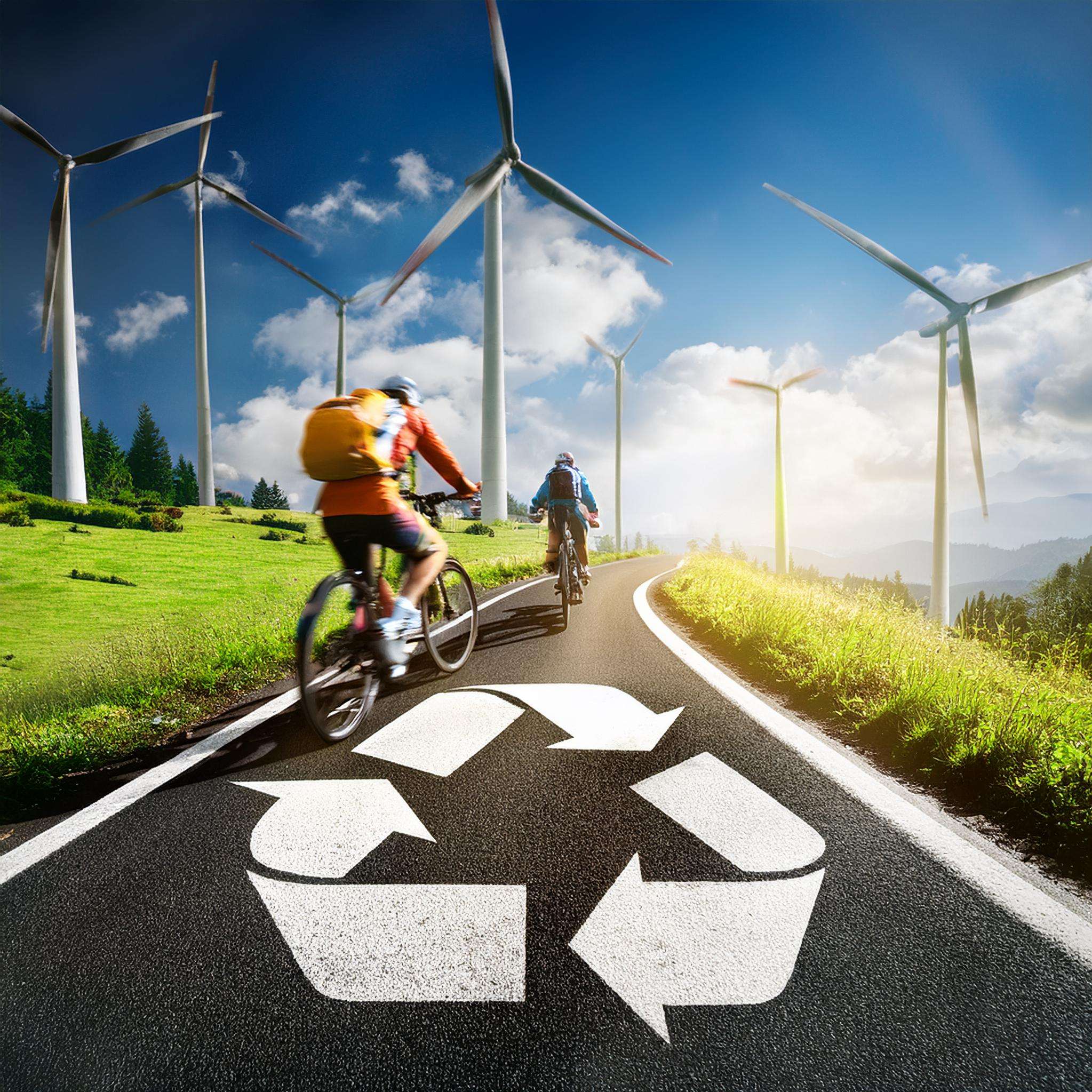
News & Blog
Home Latest News News & Blog Cycling Towards a Greener Future: The Synergies Between Active Travel and the Circular Economy

In today's rapidly changing world, the concepts of active travel and the circular economy are gaining significant traction. Both have the potential to transform our cities, improve our health, and create sustainable systems that benefit both society and the environment. But how do these two movements intersect, and what synergies can be harnessed to create a more sustainable future?
Understanding Active Travel
Active travel is all about moving from one place to another using your own muscle power. Whether it's walking, cycling, or even running, it’s a fun way to get around. Picture this: you hop on your bike, feel the breeze in your hair, and know that every pedal helps keep the air cleaner. Isn’t that a fantastic feeling? Active travel not only helps you stay fit but also benefits the environment.
The Circular Economy Explained
Now, let’s switch gears and talk about the circular economy. Imagine a system where waste is practically zero. That’s the essence of the circular economy. Instead of the old "take-make-dispose" model, it focuses on reusing, repairing, and recycling. Think of it as a giant recycling loop where materials are always in circulation. This means products stay in use longer, and resources are used more wisely.
The Connection Between Active Travel and the Circular Economy
So, where do these two concepts meet? The connection is stronger than you might think. Active travel promotes less reliance on cars, which cuts down on pollution and helps us reduce waste. When people walk or cycle, they often choose local shops, reducing the need for big delivery trucks. This is a win-win for the community and the planet.
Reducng Waste Through Sustainable Transport
Imagine a world where bikes are the main mode of transport. Fewer cars mean less traffic, less noise, and significantly less waste. With each trip made by bike, you’re helping to lower the amount of waste that fills landfills. Plus, think about all those single-use plastic bags and takeaway containers we use when driving to the nearest fast-food shop. Active travel encourages us to support local businesses, often making healthier choices along the way.
Creating a Repair Culture
Ever had a flat tyre on your bicycle? It’s a nuisance, but it’s also a chance to fix something rather than throw it away. This idea isn’t just for bikes; it's a central part of the circular economy. By cycling or walking, you naturally promote a mindset of repair and reuse. Why invest in a new bike when you can fix up the one you’ve got? This attitude boosts local repair shops and keeps resources in circulation for longer.
Promoting Local Communities
Active travel helps strengthen community ties. When we walk or cycle, we interact more with our surroundings and the people in them. Community events, local markets, and green spaces become more accessible. This not only fosters a sense of belonging but also encourages local economies. When more people support local, we build a stronger, circular system.
The Health Connection
Let’s not forget about health. Active travel is a simple way to incorporate exercise into our daily routines. As more people opt for walking or cycling, we see a healthier population. Increased fitness means fewer healthcare costs, leading to less resource consumption. The circular economy flourishes when both the environment and our health improve.
Innovations in Active Travel and Circular Solutions
Many companies are now embracing innovative approaches to merge active travel and the circular economy. Ever heard of bike-sharing programmes? They act like libraries for bikes, allowing people to borrow and return them instead of buying their own. This reduces waste and promotes active travel at the same time. Plus, councils are investing in infrastructures, like cycle lanes and pedestrian footpaths, which encourage more people to ditch their cars.
A Sustainable Future Awaits
Combining active travel with the principles of the circular economy creates a powerful synergy. It’s about more than just getting from A to B. It’s about making choices that benefit our bodies, our communities, and our planet. By embracing both, we’re pedalling (or walking) towards a cleaner, healthier future for everyone. Next time you think about hopping in the car, consider how much better it might be to take the scenic route on foot or by bike. What’s stopping you from making that change?
Cycle Parking Circularity and Traceability
Circularity requires a mindset shift, from the way we design, create and re-use cycle parking, and also to what we do with them once they have reached the end of their life. Falco intends to be at the forefront of cycle parking Circular Economy, which is inextricably linked to the product range and it’s commitment to stimulate the use and comfort of bikes. Thus contributing to sustainable mobility.
Wherever possible, Falco utilises sustainable materials throughout its product ranges. Falco is one of the first companies in the Netherlands to become FSC® certified. This means that all wood is accredited to the FSC quality mark of the Forest Stewardship Council®. Falco BV is certified under registration number: CU-COC-008530 and the Falco subsidiaries in the United Kingdom, Germany and Denmark can also confirm the certification status.
In addition to wood, steel is also a common material used throughout the product range and is 100% recyclable (even when galvanised). Corten steel is also used at Falco which again, is 100% recyclable, boasts low CO2 emissions and last just as long as regular steel!
All products ranges are contemporary and durable, typical of a Falco product. For over 60 years Falco has been at the forefront of the cycle parking and street furniture market and has built up a renowned reputation for manufacturing products that exceed in both design and durability.

Our customer services team are on hand to offer product guidance and technical support.
Subscribe to our Monthly ‘e-News’ Newsletter: Stay up to date with new product releases, company news and special offers by subscribing to our monthly ‘e-News’ newsletter.

